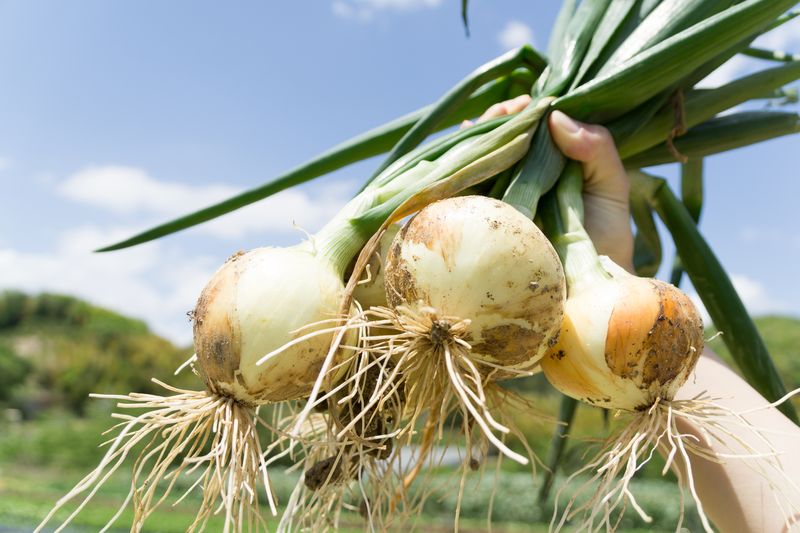For thousands of years, onions have been present in nearly every culture throughout the world. Ancient Egyptians saw the onion as a symbol of eternal life, Greek Olympians used onions to prepare for competition, and early Indian physicians used onions as medicine. But why does the onion have such a rich history? What makes this vegetable so special, and so pervasive? Let’s take a look at the history of onions, how they have spread throughout the world, and why they continue to be a significant part of culture and cuisine today.
The History of Onions
The origin of the onion is not exact, but historians have found evidence of onions being used by humans over 5,000 years ago in the Bronze Age. Many researchers believe onions were first grown in Asia – areas now recognized as India, Uzbekistan, and Afghanistan.
Ancient Egypt
Onions were a staple in the early human diet and one of the earliest cultivated crops among human civilizations. Ancient Egyptians also saw onions as a symbol of eternity, because of the concentric rings within the vegetable. Many mummies have been discovered with onions stuffed inside the body – including King Ramses IV who had onions placed in his eye sockets.
Medicinal Properties
As a remedy, onions have been historically used for a wide variety of ailments including hair loss, mouth sores, vision problems, asthma, and snake bites. Today we know that onions do have a global health benefit due to the presence of flavonoids and a sulfur compound known as the alk(en)yl cysteine sulphoxides (ACSOs).
The common onion (Allium cepa) is also an amazing source of several nutrients, minerals, and vitamins like dietary fiber, folic acid, vitamin B6, magnesium, and calcium. No wonder early civilizations heralded this vegetable as a wonder drug!
Early Cuisine
Aside from its many unconventional uses, onions were, of course, consumed as a source of nutrients and flavor throughout history. Native Americans used wild onions in stir-fry dishes, Europeans used them in stews in the Middle Ages, and the Chinese ate salted green onions to get them through harsh winters.
Why Are Onions So Widespread?
One of the main reasons onions have permeated every culture is their hardiness. Onions are durable and store for long periods of time, making them a perfect crop for travel and export. Even pilgrims made sure to bring onions aboard the Mayflower on their first trip to the Americas.
The bold, distinct flavor and versatility of onions also contribute to their widespread presence in different types of cuisine. Whether raw, pickled, caramelized, dried, or sauteed, onions add a special taste profile to dishes all over the world.
Iconic Onion-Filled Dishes from Other Countries
Today, onions are found in nearly every culture as a staple ingredient. In fact, many of the most well-known dishes from around the world include onions. As one chef said, “Every great meal starts with onions, garlic, and olive oil in a pan.”
Here are just a few examples of iconic cultural dishes that commonly include onion:
- Borscht (Russia and Ukraine)
- Pork Dumplings (China)
- Takoyaki (Japan)
- Swedish Meatballs (Northern Europe)
- Doner Kebab (Türkiye)
- Felafel (Middle East)
- Quiche Lorraine (France)
- Paella (Spain)
- Nigerian Jollof Rice (Africa)
- Chicken Tikka Masala (India)
- Pico de Gallo (Mexico)
- Brazilian Feijoada (South America)
Whether you’re in a bustling metropolis like Tokyo, or rural farmland in Germany, onions make dishes complete in every corner of the world!
Onions as Inspiration
At GIlls Onions, we celebrate the use of onions and fresh produce throughout all cultures, not just here in America. Eating healthy, nourishing foods can be an exciting and flavorful experience – especially when onions are involved. People have been incorporating onions as a nutritious vegetable into recipes for thousands of years, and we honor those traditions.
Ready to try onions grown “The Gill Way?” Contact our sales department to learn more.

